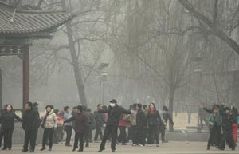Climate change spurs carbon credit trading
(China Daily) Updated: 2014-06-10 07:54Experts sbaid it's a common practice to start a national market from imposing caps on carbon dioxide emissions from utilities and industry, as some regional pilot programs have done.
 |
 |
"Experience both abroad and in China has proved that trading can only be effective under a robust cap, which contributes to and helps deliver the establishment of an economy-wide emissions management program," said Dan Dudek, vice-president of the Environmental Defense Fund, a United States environmental group.
Pilot trading projects have been ongoing in six cities and provinces in Beijing, Shenzhen, Shanghai and Tianjin and the provinces of Hubei and Guangdong since 2003. The southwestern city of Chongqing will be the latest region to launch carbon trading later this month.
"They are individual projects," Sun said. "Even if we expand the pilot projects to more regions, they are still not a connected and whole market, so it's not the most effective and rapid path to take."
The average trading price of carbon permits in the pilot cities and provinces range from 27 yuan ($4.4) in Tianjin to 70 yuan in Shenzhen.
Li Junfeng, director of the National Center for Climate Strategy and International Coordination, said the varying carbon prices indicate the regions' unequal stages of development and quota allocation systems.
|
 |
 |
| China launches carbon trading in Hubei | Tianjin starts carbon trading market |
- China 'incredibly innovative' in many areas: Apple CEO
- City official: Guangzhou further committed to opening-up
- Jack Ma: Globalization backed by technology will cut inequality
- HNA confirms interest in ASEAN's infrastructure investment
- Comments on Xi's letter to 2017 Fortune Global Forum
- China to create more opportunities for the world: Xi
- US tax cuts impact on China two-sided: economists
- Chinese enterprises job fair to be held in Sri Lanka

















